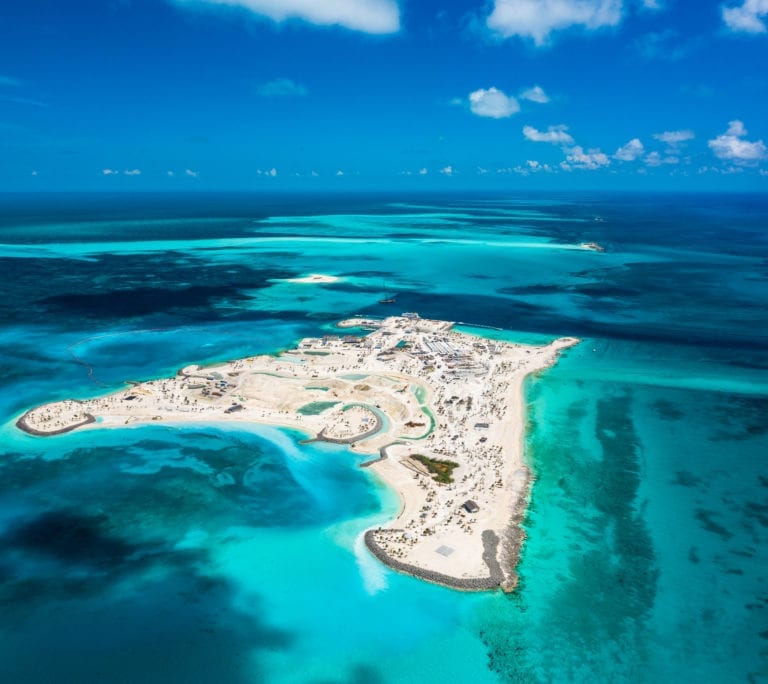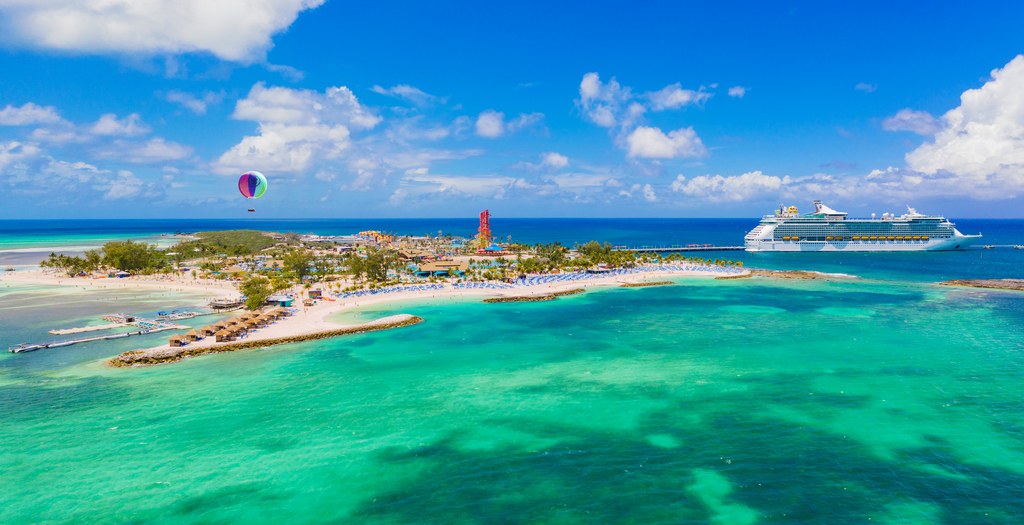There has been a growing presence of private islands owned by cruise lines worldwide. This trend, however, didn’t just start recently. In fact, cruise operators first saw the value in owning private islands four decades ago.
Allan Jordan, a maritime historian and cruise industry author, states that cruising began in the early 1970s.
In the early days of cruising, lines like Norwegian Caribbean Lines (now known as Norwegian Cruise Lines) would have seven-day cruises from South Florida to nearby islands.
One of the stops on the cruise would be an onshore beach party off of Grand Cayman. According to Jordan, customers would rate the party experience as their favorite activity during the cruise.
This sparked an idea in Knut Kloster, the co-founder of Norwegian Caribbean Lines, who asked for the right to purchase a portion of the Great Stirrup Cay from the Bahamian government. He then began running cruises from Miami to Norwegian’s new private island.
In May 1977, the first guests cruised to the private island on the ship Sunward II. This route was called “Bahamarama”.
Jordan says, “When passengers got there, it was basically a Robinson Crusoe adventure. There was no dock, and because the Sunward didn’t carry tenders, they had to take passengers ashore in the lifeboats and people loved it.”
This trip experienced 10 years of success and in 1986, Norwegian purchased the entire island — investing lots of money of the years. They will now be adding a spa, private lagoon, and more restaurants to the island by the end of this year.
Norwegian is only one of the many cruise lines investing into private islands.
Here are the reasons why cruise lines invest:
Financial Gain
When the cruise lines purchase their own island, they’re now able to have surcharges and fees for activities on the island. This can include dining out on the island or even renting equipment.
The best part for the cruise line is that customers will continue spending money with the cruise line instead of into the local economy — everything they purchase on the island is owned by the cruise line.
For example, Royal Caribbean recently spent $250 million to relaunch Perfect Day at CocoCay — which is located on their 125-acre island in the Bahamas. The capacity is 9,000 and the island has a water park, a freshwater pool, and a helium balloon.
Extending Their Brand Identity
Cruise Critic’s Carolyn Spencer Brown tells CN Traveler, “cruise lines have become very savvy designing an experience their passengers will like, and so they really mirror whats going on. The ship Holland America’s private island for example? Less about zip lines and more about private cabana and horse-riding on the beach.”
Purchasing a private island also allows the cruise line to extend its brand identity onto land.
“People go on vacation today and they’re stressed, time-crunched, and want to spend time with their family without waiting in line, so this is a nice bubble to be in for a day — if only a day,” says Spencer Brown.
Conservation
Global cruise line MSC Cruises has been operating since 2003 and is currently opening a private island in the Bahamas called Ocean Cay MSC Marine Reserve.

After spending about $200 million, the custom-designed private island will have eight individually-themed beaches — including family-oriented beaches, designated beaches for crew and one for watersports like kayaking.
Ocean Cay MSC Marine Reserve will also have an emphasis on conservation.
According to CN Traveler, the island is surrounded by 64 square miles of protected waters.
Funds have been set aside for a coral nursery — which will help boost the health of the reef.
Guests of the private island will be educated on marine endangerment.
Gianni Onorato, MSC president, says: “This island was exploited as an industrial site in the past. That’s not what we’re doing. We want our customers to think about how to protect the oceans, and be a part of it.”
Convenience And Exclusivity
Cruise lines owning their own islands bring about convenience. These islands are a home port where the cruise line can make their own rules.
Many have also added their private islands as an upgrade to itineraries and customers end up loving the island because of exclusivity.
Beth Butzlaff of the luxury travel firm Virtuoso says, “they [private islands] provide a sense of exclusivity to everyone. Nothing says luxury more than being able to say ‘I spend a day on a private island’.”
Other cruise lines with private islands: Disney Cruise Lines, Costa Cruises, and Carnival Cruises.
